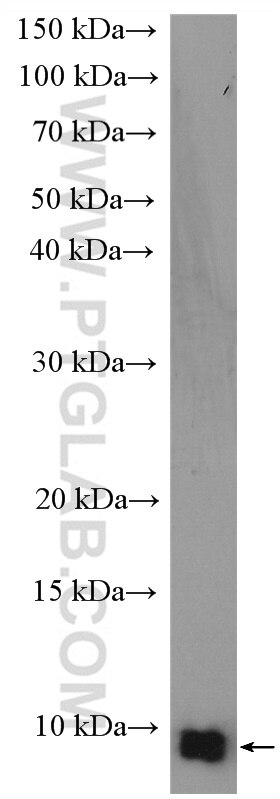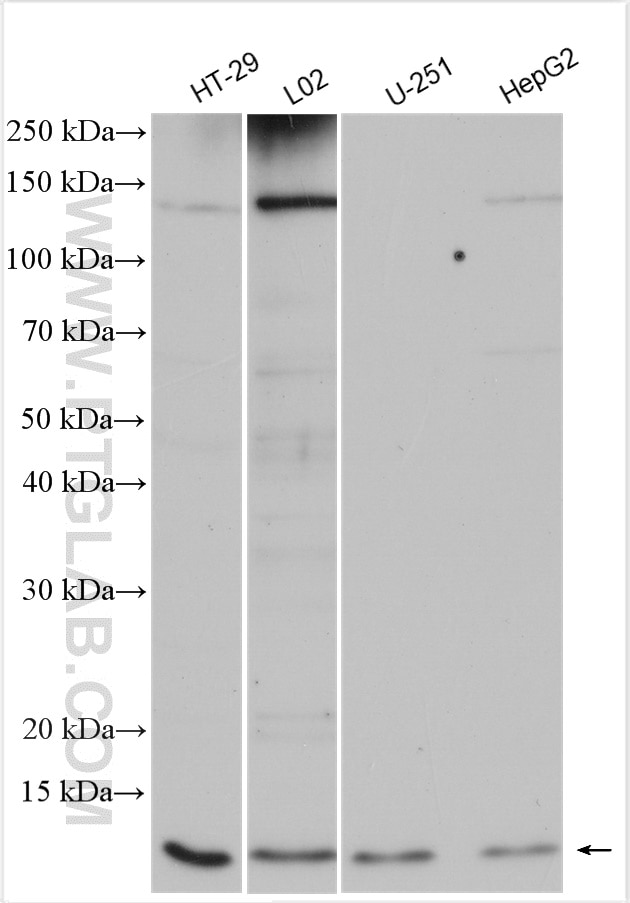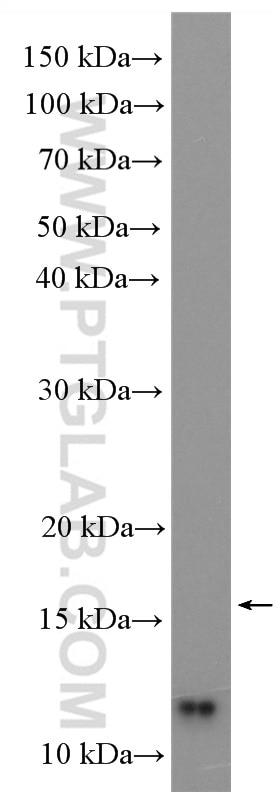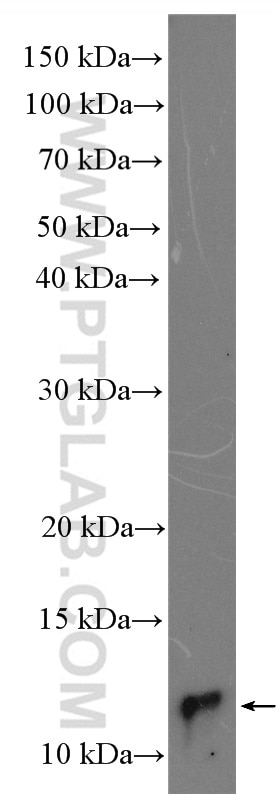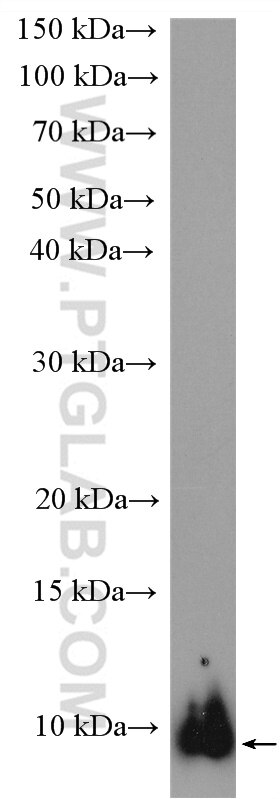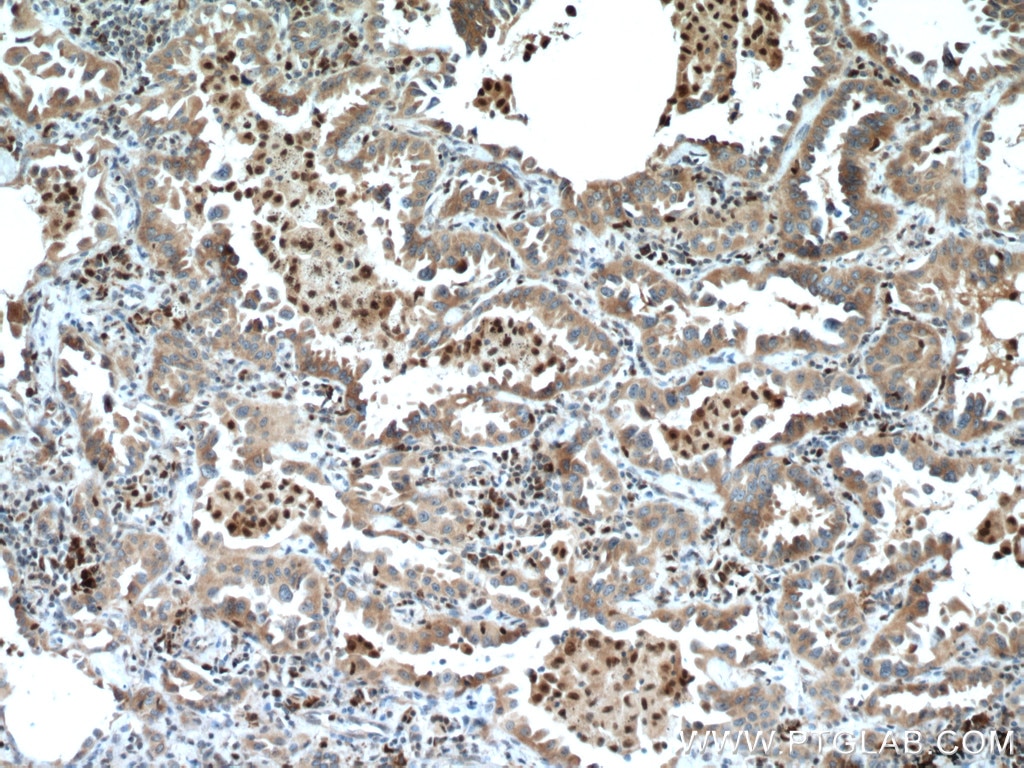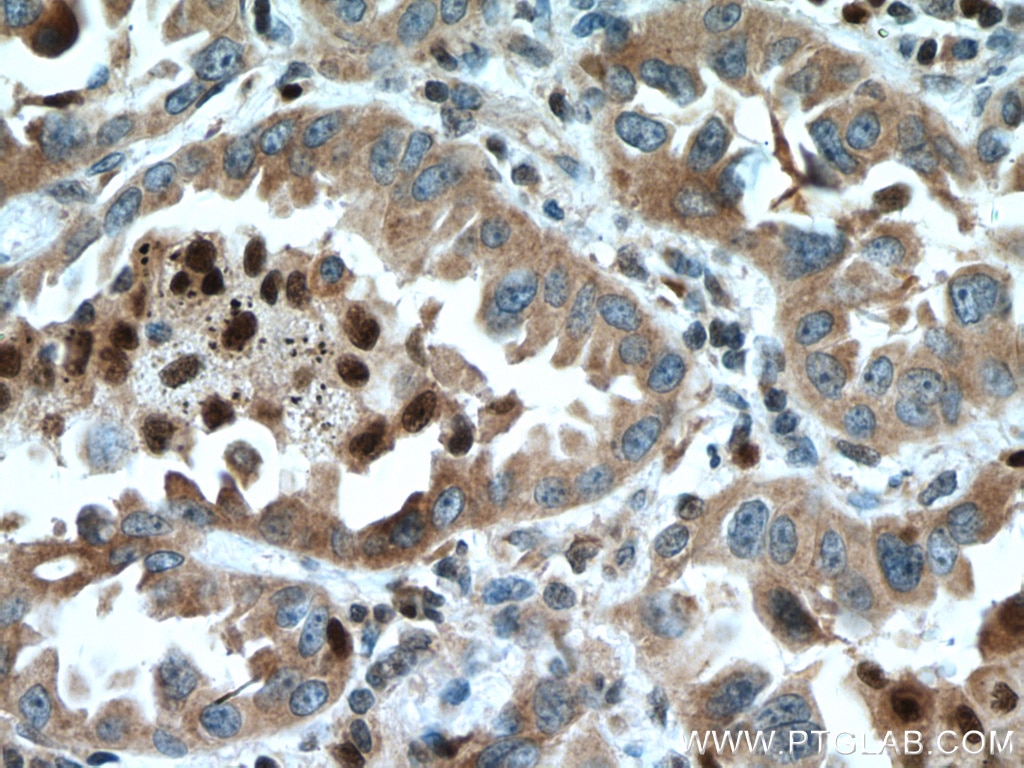UFM1 Polyclonal antibody
UFM1 Polyclonal Antibody for WB, IHC, ELISA
Host / Isotype
Rabbit / IgG
Reactivity
human, mouse
Applications
WB, IHC, ELISA
Conjugate
Unconjugated
Cat no : 15883-1-AP
Synonyms
Validation Data Gallery
Tested Applications
| Positive WB detected in | HT-29 cells, HEK-293 cells, HepG2 cells, mouse liver tissue, mouse lung tissue, L02 cells, U-251 cells |
| Positive IHC detected in | human lung cancer tissue Note: suggested antigen retrieval with TE buffer pH 9.0; (*) Alternatively, antigen retrieval may be performed with citrate buffer pH 6.0 |
Recommended dilution
| Application | Dilution |
|---|---|
| Western Blot (WB) | WB : 1:500-1:1000 |
| Immunohistochemistry (IHC) | IHC : 1:50-1:500 |
| It is recommended that this reagent should be titrated in each testing system to obtain optimal results. | |
| Sample-dependent, Check data in validation data gallery. | |
Product Information
15883-1-AP targets UFM1 in WB, IHC, ELISA applications and shows reactivity with human, mouse samples.
| Tested Reactivity | human, mouse |
| Host / Isotype | Rabbit / IgG |
| Class | Polyclonal |
| Type | Antibody |
| Immunogen | UFM1 fusion protein Ag8667 |
| Full Name | ubiquitin-fold modifier 1 |
| Calculated Molecular Weight | 85 aa, 9 kDa |
| Observed Molecular Weight | 9-12 kDa |
| GenBank Accession Number | BC005193 |
| Gene Symbol | UFM1 |
| Gene ID (NCBI) | 51569 |
| RRID | AB_2878195 |
| Conjugate | Unconjugated |
| Form | Liquid |
| Purification Method | Antigen affinity purification |
| Storage Buffer | PBS with 0.02% sodium azide and 50% glycerol pH 7.3. |
| Storage Conditions | Store at -20°C. Stable for one year after shipment. Aliquoting is unnecessary for -20oC storage. 20ul sizes contain 0.1% BSA. |
Background Information
UFM1 (Ubiquitin-fold modifier 1) is a ubiquitin-like protein covalently conjugated with intracellular proteins through UFMylation (modification by UFM1), a process similar to ubiquitylation (PMID: 38141606). UFM1 is conjugated to its target proteins by E1-like activating enzyme UBE1DC1 and E2-like conjugating enzyme UFC1 in a manner analogous to ubiquitylation (PMID: 28234446; 33066455). At the molecular level, UFMylation is an important mediator of the protein function. Dysregulation of the UFM1 system, e.g., the knockout of UFMylation components, disturbs proteome homeostasis and triggers endoplasmic reticulum stress. Such changes are linked to developmental disorders, tumorigenesis, tissue injury, inflammation, and several hereditary neurological syndromes (PMID: 36932998). Western blot images showed that bands larger than 100kd may be proteins modified by UFM1.
Protocols
| Product Specific Protocols | |
|---|---|
| WB protocol for UFM1 antibody 15883-1-AP | Download protocol |
| IHC protocol for UFM1 antibody 15883-1-AP | Download protocol |
| Standard Protocols | |
|---|---|
| Click here to view our Standard Protocols |
Publications
| Species | Application | Title |
|---|---|---|
Mol Cell An Epstein-Barr virus protein interaction map reveals NLRP3 inflammasome evasion via MAVS UFMylation |
